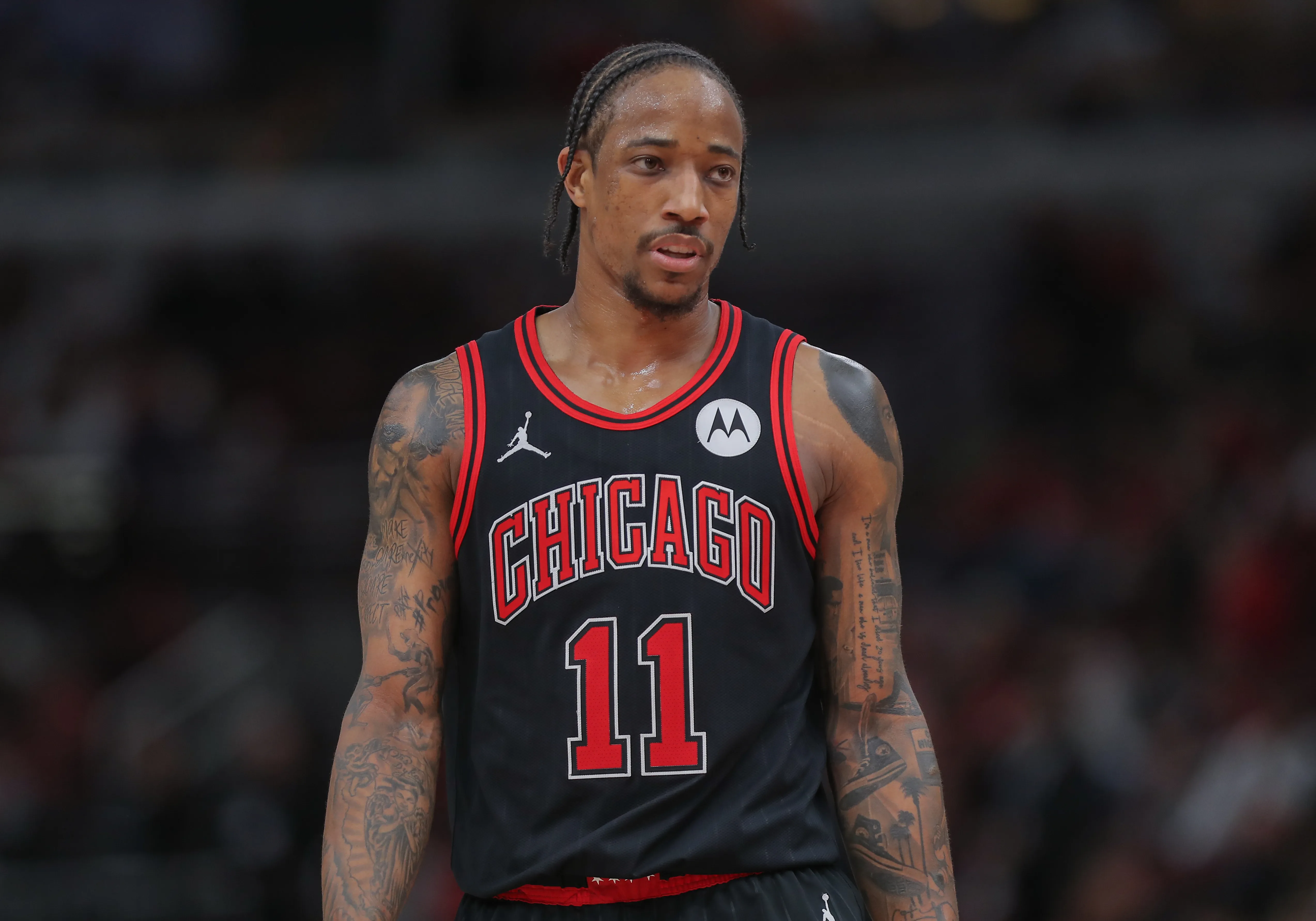
Simeon's 2011-12 basketball team has stirred up considerable excitement. Call it a generational version of Beatle-mania.
Coach Robert Smith's Wolverines, heavily favored to win their third state championship in a row and fifth in seven years, are being touted as the No. 1 team in the nation. And it features 6-8 junior Jabari Parker, whose youthful celebrity is comparable to LeBron James and Derrick Rose.
So author Scott Lynn thinks it is time to remind today's hip-hoppers and slam-jammers and crossover dribblers that, 40 years ago, Thornridge's 1971-72 team created every bit as much hoopla as Simeon. It is the Falcons' unprecedented record of achievement that Simeon is chasing this season.
Stay in the game with the latest updates on your beloved Chicago sports teams! Sign up here for our All Access Daily newsletter.
Lynn's book, "Thornridge: The Perfect Season in Black and White," published by AuthorHouse, brings back memories for high school basketball fans throughout Illinois. Let the "old-school versus modern-times" debate rage on.
Could Thornridge make the transition to today's fast-paced style? Who would you choose to lead your team, Parker or Quinn Buckner? Could Simeon break Thornridge's suffocating 1-2-1-1 zone press that devastated every opponent? Will Simeon or any state champion ever measure up to Thornridge's gold-standard performance over Quincy (104-69) in the 1972 state final?
Simeon supporters argue, justifiably, that Thornridge didn't play the challenging national schedule that awaits the Wolverines. In the 1970s, Illinois schools were restricted by travel limitations. Thornridge's toughest opponents were south suburban rivals Bloom and Thornton and perennial Downstate power Peoria Manual.
In a 33-0 season, Thornridge never allowed an opponent to come within 14 points. Only four other teams came within 20 points. In the era prior to the three-point shot, the Falcons averaged 88 points per game. The closest any other state champion came was La Grange and Ted Caiazza in 1953, which went 29-0 without allowing any opponent to come within nine points.
News
In one national poll of the top 25 high school teams of all time, Thornridge 1972 was rated No. 4 behind Baltimore Dunbar 1983, New York City's Power Memorial 1964 and Hyattsville, Md., De Matha 1965.
Dunbar boasted three NBA first-round picks in the 1987 draft--Reggie Williams, Muggsy Bogues and Reggie Lewis. Another future NBA player, David Wingate, also was a starter.
Power Memorial was led by 7-2 junior Lewis Alcindor, now Kareem Abdul-Jabbar, who went on to become the highest scoring player in NBA history. The team had a 71-game winning streak.
De Matha, the team that snapped Power Memorial's 71-game winning streak was led by Bob Whitmore, Sid Catlett, Bernard Williams Mickie Wiles and Ernie Austin. It was the best team produced by legendary coach Morgan Wootten.
Interestingly, Thornridge 1972 ranked ahead of Oscar Robertson's 1955 Indianapolis Crispis Attucks team and Wilt Chamberlain's 1955 Philadelphia Overbrook team.
The author, Scott Lynn (real name: Scott Betzelberger), has an interesting background in Illinois high school basketball. He was captain of Lincoln's 1971-72 team that was rated behind Thornridge for much of the regular season. After playing basketball and graduating from Southern Illinois in 1976, he set out on a career in radioTV broadcasting. For the last 22 years, he has served as sports director of KEX Radio in Portland, Oregon.
Lynn is a colon cancer survivor who underwent life-saving emergency surgery in 2008. He wrote his book on Thornridge while undergoing chemotherapy during the summer of 2009.
"If ever a team was a worthy subject for a great book like this one, this is it--the greatest high school team I ever saw," said Mike Downey, former sports columnist for the Los Angeles Times and Chicago Tribune who grew up in Chicago Heights and covered the Thornridge team for the Chicago Heights Star.
Though his Lincoln team never had an opportunity to play against Thornridge in 1971-72, Lynn was always fascinated by the aura of coach Ron Ferguson's team and its dominant players--Quinn Buckner, Boyd Batts, Mike Bonczyk, Greg Rose and Ernie Dunn.
Buckner was the national player of the year in 1972 and was recruited by John Wooden of UCLA and Bob Knight of Indiana. He is the only Chicago area athlete in history to be named Player of the Year in football and basketball. He played one year of football at Indiana before quitting to concentrate on basketball. He captained Indiana's unbeaten 1976 NCAA championship team, the 1976 U.S. Olympic team and one of the Boston Celtics' NBA championship teams.
"Quinn Buckner was the most mature high school athlete I ever saw, both physically and mentally. And that team was the same way. It was really a tough group. Their business was winning. And business was good," said former Chicago Bulls announcer Jim Durham.
But Thornridge was more than Buckner. For example, Lynn researched how the issue of racial integration was overcome when black students were enrolled at the previously all-white school. Buckner, whose mother was a teacher in the district and whose sister later became superintendent of the district, and Batts were among the first African-Americans to attend the Dolton school.
Lynn focuses on other fascinating human-interest stories that played out beyond the basketball court...how Ferguson was able to maintain discipline among his players, how Greg Rose had to work nights as a musician to support his family, Ferguson confessed that he rarely slept because he was worried that he would make a mistake that would cause his once-in-a-lifetime team to lose a game.
One incident tells you all you need to know about the Thornridge team: During a team meeting prior to the start of the season, Ferguson was listing his team's goals on a chalkboard. He wrote: "Win the conference. Win the regional. Get back to state. Win a second straight state title."
Buckner stood up and said to his coach and the other players: "If we win all of our games, we will accomplish all of our goals." The meeting was over. The mission was clear: 33-0. No Illinois team before or since has ever done it better.
That is the challenge that confronts Simeon this season.


